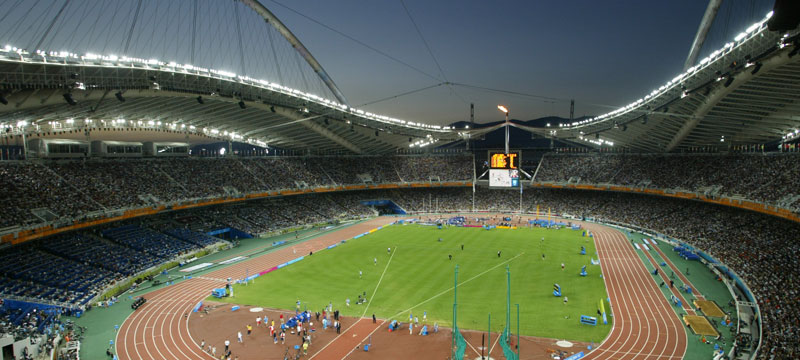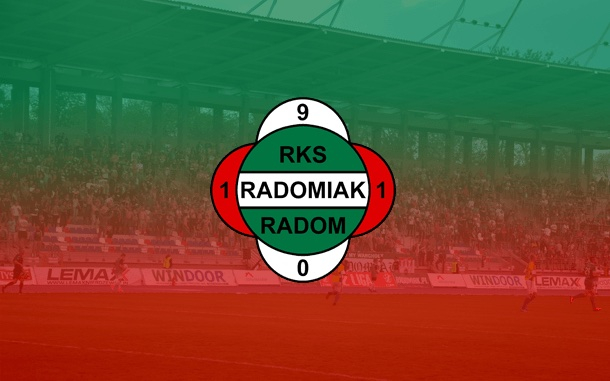
Athens Olympic Stadium
The architecture of the Athens Olympic Stadium is a reflection of Greece’s desire to combine classical elegance with contemporary design. Its planning and construction demonstrate how sports venues can serve as symbols of cultural identity and engineering excellence. From its initial neoclassical motifs to its modern enhancements, the stadium is a masterpiece of architectural innovation and adaptability.
The design emphasizes an open, airy layout, allowing natural light and airflow, which is essential for comfort and energy efficiency. The incorporation of modern materials such as reinforced concrete and steel enabled the construction of expansive seating and retractable roof structures, supporting a versatile use of the space. These engineering innovations have contributed to the stadium’s resilience, making it capable of hosting events under diverse weather conditions while maintaining structural integrity.
Furthermore, the stadium’s aesthetic appeal lies in its thoughtful symmetry, clean lines, and contextual integration with the surrounding landscape. The use of local stone and materials pays homage to Greece’s ancient architectural tradition, creating a visual dialogue between past and present. The inclusion of environmentally sustainable features, such as solar panels and rainwater harvesting systems, points to a conscious effort to incorporate green practices in sports architecture.
The Influence of Athens Olympic Stadium
The influence of classical Greek design is evident in many elements of the Athens Olympic Stadium. From the origins of its concept rooted in ancient Greek athletic tradition to its eventual architectural language, the stadium embodies a reverence for Greece’s architectural heritage. The curved lines, colonnades, and decorative motifs evoke the grandeur of Greek temples and theaters, creating a sense of timelessness Kkwin.fish.
This classical influence is not merely aesthetic but also functional—designed to inspire unity and pride among spectators and athletes. It reflects a conscious effort to embed Greek culture into a modern sporting environment, making the venue more than just a place for competitions but also a monument to Greek ingenuity and cultural continuity. The architectural language serves as a bridge that links the ancient to the modern, reminding visitors of Greece’s epic history as the birthplace of democracy and Western civilization.
In contemporary design efforts, architects have successfully blended these classical elements with innovative modernism, creating a venue that feels both historic and forward-looking. The balance between tradition and innovation is what makes the Athens Olympic Stadium an enduring architectural marvel.
Modern Design Features and Sustainability
The modern features integrated into the stadium’s renovation highlight Greece’s commitment to sustainability and cutting-edge sports technology. Solar panels are discreetly integrated into the roof, harnessing renewable energy to power stadium operations, thus reducing its carbon footprint. Rainwater harvesting systems help irrigate surrounding landscape gardens, demonstrating eco-conscious planning.
The design also prioritizes flexibility, with retractable roofs and modular seating arrangements that can adapt to various types of events. These features increase the versatility of the stadium, making it suitable for concerts, exhibitions, and international competitions beyond traditional sports. The focus on user experience is reflected in comfortable, accessible facilities that cater to diverse audiences, including spectators with disabilities.
This integration of sustainable technology and user-centric design ensures that the Athens Olympic Stadium remains relevant in the era of green architecture. It exemplifies how sporting venues can serve as symbols of progress by adopting environmentally responsible practices while still respecting their historical significance.
Cultural and Sporting Significance in Greece
The Athens Olympic Stadium holds a special place in the cultural and sporting consciousness of Greece. It is a venue where athletic legends have trained, records have been broken, and memories have been made. It is also a site where Greece’s national pride was displayed on the world stage during the Olympic Games and other significant events.
Beyond its role as an athletic arena, the stadium functions as a symbol of Greek resilience and cultural identity. Its presence has inspired generations of athletes and sports enthusiasts, fostering a sense of community and national pride. The venue’s enduring legacy showcases Greece’s longstanding commitment to excellence in sports and cultural expression, making it a cherished landmark.
Throughout its history, the Athens Olympic Stadium has hosted not just sporting events but also political rallies, concerts, and cultural celebrations—integral parts of Greece’s social fabric. Its role extends beyond mere entertainment; it is a space for shared moments of triumph, reflection, and unity. As Greece continues to evolve, the stadium’s significance persists, representing both historical milestones and ongoing aspirations.
Hosting the 2004 Olympic Games
The 2004 Olympic Games in Athens marked the culmination of decades of planning and development. It was the first time Greece had hosted the Olympics since 1896, and the stakes were high. The Athens Olympic Stadium became the epicenter of this global spectacle, hosting iconic moments such as opening and closing ceremonies, athletic finals, and the lighting of the Olympic flame.
This event showcased Greece’s organizational capacity and cultural heritage, emphasizing the importance of the Athens Olympic Stadium as a symbol of national pride. The Games introduced new sports, celebrated athletic excellence, and fostered international cooperation. The stadium was a hub of excitement, bringing together athletes from around the world in a spirit of unity and competition.
The success of the 2004 Olympics significantly boosted Greece’s international profile, demonstrating that its historic stadium could meet modern demands and host an event of extraordinary scale. It also sparked interest in revitalizing surrounding areas, turning the stadium into a multifunctional space for community engagement and tourism. The legacy of these Games continues to influence the stadium’s role in Greece’s contemporary cultural landscape.
The Stadium’s Role in Greek Identity
The Athens Olympic Stadium symbolizes more than just a sports venue—it embodies Greece’s enduring spirit, its rich history, and its modern ambitions. It serves as a canvas where Greece’s stories of resilience, achievement, and cultural pride are vividly painted. For many Greeks, it is a sacred space, reminiscent of ancient athletic pursuits and a testament to Greek ingenuity.
Its importance extends into national festivities, commemorations, and public celebrations, reinforcing the stadium’s symbolic role in Greek life. It is often regarded as a place of remembrance—honoring athletes who have brought glory to Greece or commemorating historic moments in the nation’s journey. The stadium’s architecture and history evoke a collective sense of identity rooted in both the past and the future.
As Greece explores new avenues for tourism and international recognition, the Athens Olympic Stadium remains central to this narrative. It attracts millions of visitors who seek to experience its history firsthand, inspiring future generations of athletes and citizens. The stadium’s ongoing vitality ensures that Greek cultural identity continues to thrive, rooted in its ancient traditions and modern accomplishments alike.
Conclusion
The Athens Olympic Stadium stands as a testament to Greece’s enduring legacy in sports, culture, and architecture. From its humble beginnings in the late 19th century to its modern transformation for the 2004 Olympics, it has continually evolved while maintaining its historical essence. Its architectural innovations, rooted in Greek classical design yet embracing sustainability, make it a symbol of progress and tradition. More than just a sports venue, it is a cultural icon that celebrates Greece’s rich history and ongoing aspirations. Its influence as a site of global sporting excellence, national pride, and cultural significance cements its position as one of the most iconic sports venues in the world. Whether hosting international athletes or standing as a monument to Greece’s historical achievements, the Athens Olympic Stadium remains a powerful symbol of human resilience, ingenuity, and unity.



